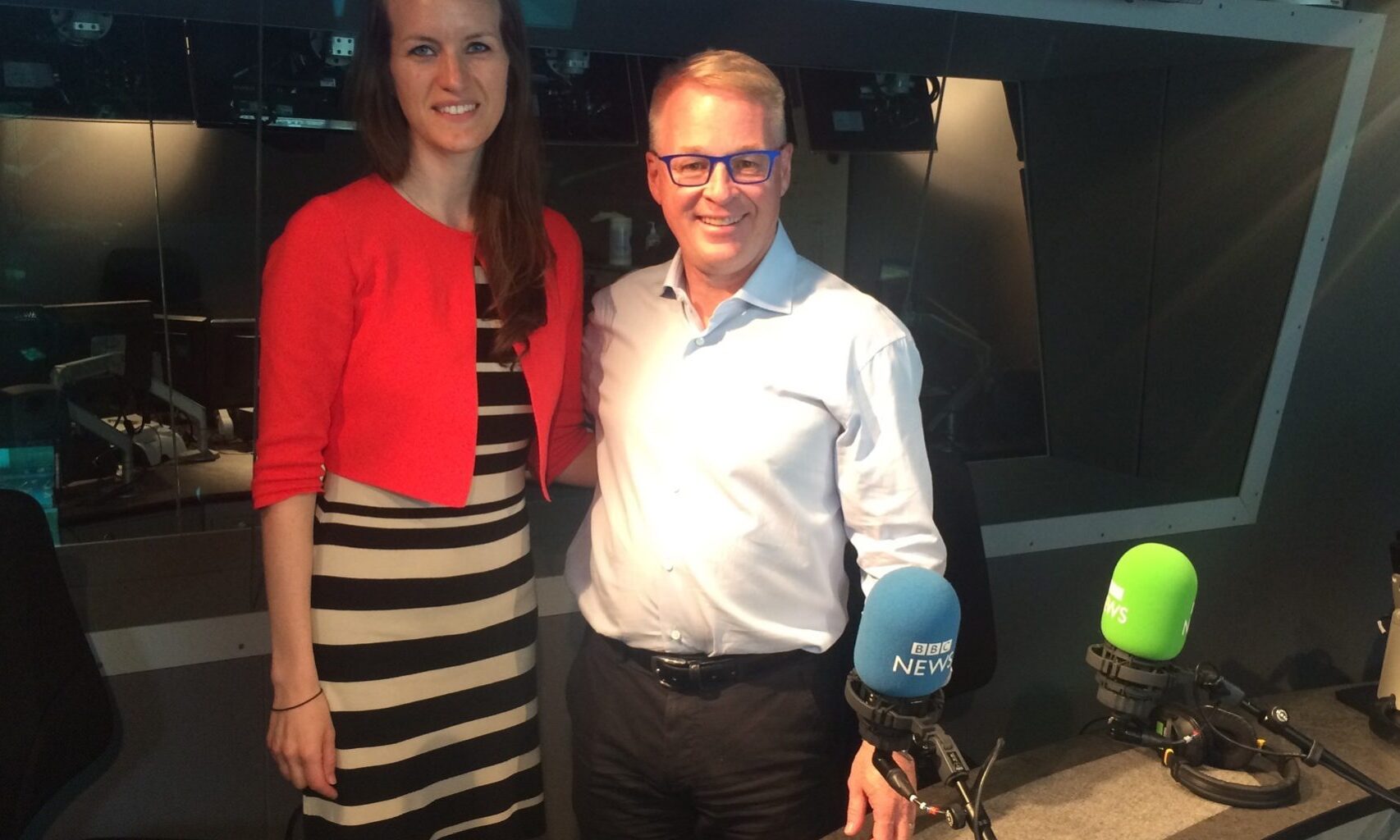Sophie Morris, Strategic Marketing & Sponsorship Consultant at Millharbour Marketing (now Sponsor View), joined the panel on BBC Radio 5 Live’s ‘Wake Up to Money – Sports Edition’ on 24th July.
With her were Keith Pelley CEO of the PGA European Tour (also pictured), Ryan Paterson Managing Director of ProZone and Michael Downey CEO of the Lawn Tennis Association. You can listen to the show on the BBC iPlayer here. (Our section starts at the 50:00 mark)
Both Keith and Michael spoke about the need to be more accessible to new audiences, something we know well from our experience in rugby and the need to explore different formats of the sport to attract TV audiences and new participants.
The Badminton World Federation changed their scoring mechanism in 2006 in order to reduce the length of a match and make it a more viable product for TV.
All sports need to look at the needs of the audiences they are trying to attract and need to accept change if they want to secure the future of their sport.
Keith Pelley is particularly keen on this idea and is exploring different formats at the professional level along with a potential rebrand to reposition the European Tour as the game expands.
Ryan Paterson of ProZone talked about the advancement in analytics data in sport and how real time data feedback will soon be possible. There is an obvious opportunity here to allow certain data streams to be made available for fan engagement either through broadcasters or through second screen content that can produce a sponsorable asset for rights holders.
We also heard from Michael Downey about the decline in participation in tennis and how the sport is reallocating budget to make it more accessible and get the base of the sport growing. They are also getting sponsors involved in not only funding participation but also activating their sponsorship in ways that contribute to that.
We are a strong advocate of sponsors actively developing the sport they sponsor, not just using the exposure and activation for their own commercial objectives. This ‘partnership’ approach to sponsorship means that the sport itself benefits, increasing the sponsorship value as a result.
This is something we discussed in our section of the BBC Radio show which focused on the Russian doping scandal and the impact that might have on Olympic sponsors and those sponsoring the FIFA2018 World Cup in Russia.

Sponsors clearly need to assess the situation and if they feel that the sponsorship property no longer fits their brand values they need to reconsider that property’s place in their sponsorship portfolio.
Any sponsorship property needs to meet the sponsor’s objectives, target the right audience, be part of their long-term strategy and fit with their brand values. At the point in which it fails to do any of those, sponsors should consider not renewing their deal. When a sponsors feels that they have suffered reputational damage as a result of controversy or corruption, they should activate the clauses in their contract that allow them to walk away.
However, we feel that where a sport or an event is troubled by controversy, if it is still in control and the situation is resolvable, and where the property still fits in the sponsor’s strategy, they should work with the sport to solve the problem. It is easy to walk away, but it’s better for sport if all the stakeholders can work together to make it better. Collaborating to clean up sport will not only secure the integrity and principles of the sport, and therefore the value to sponsors, but it can actually increase the value as the sport is made better.

